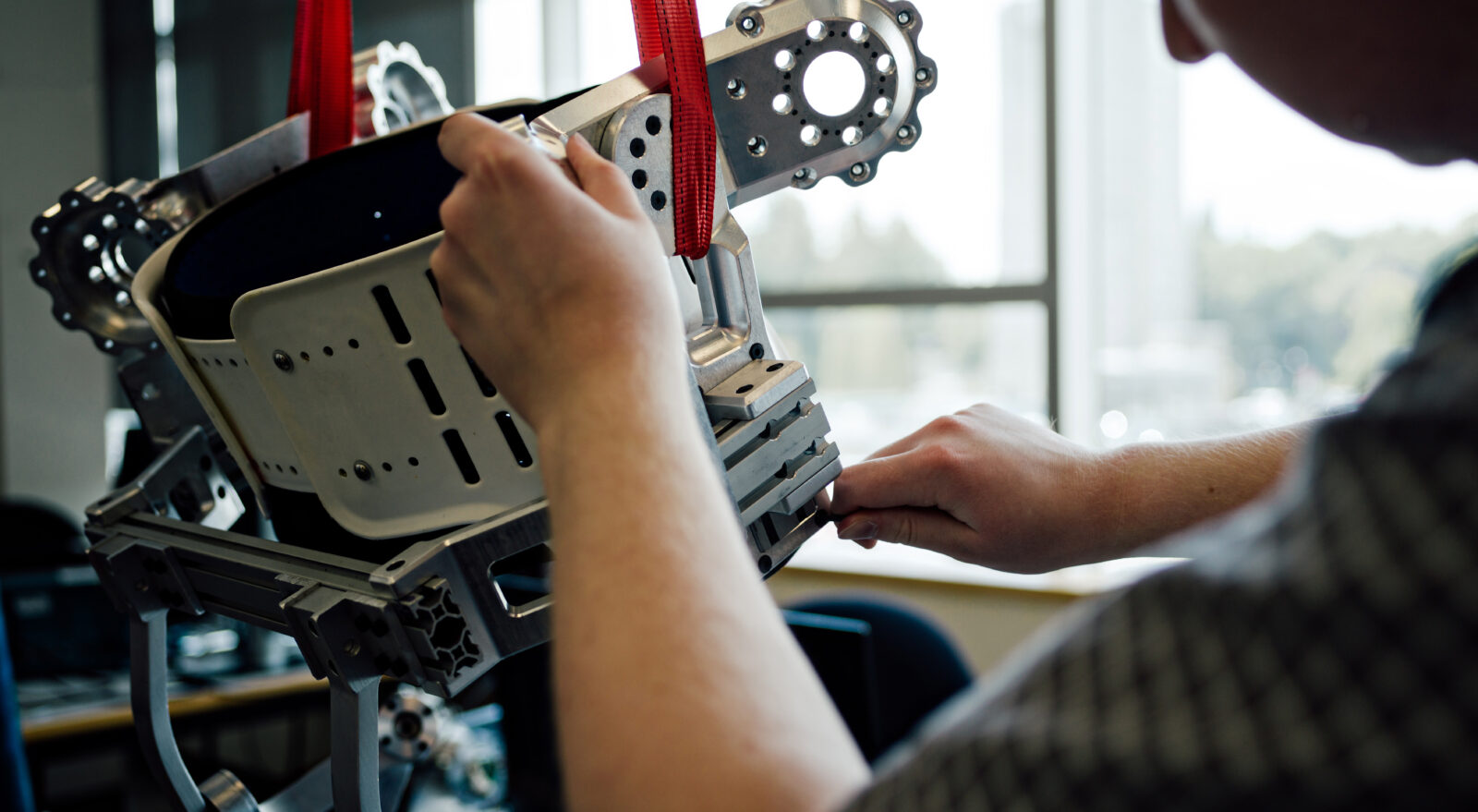Building on the country’s knowledge capital and expertise in the technology sector, Canada is engaging a new generation of tech leaders thanks to its world-class training and testing facilities. The country is also attracting business events that promote knowledge sharing and collaborations across institutions, industries and borders. Here’s a look at just some of the reasons that Canada is an event magnet in the technology sector.
Start-up strength
Since 2018, Canada’s Information and Communications Technology (ICT) sector has been one of the country’s strongest, not just in terms of output, but also employment and economic growth. As of Q2 2019, the sector contributed $89.4 billion to Canada’s GDP, and out of the 41,500 companies in the sector, 90% are in software and computer services.
Some highlights for the sector include HSBC (UK) opening its Global Data & Innovation Lab in Toronto, where more than 50 people hold AI-related roles; Facebook (USA) expanding its Montreal AI lab and doubling its researchers; and Amazon Web Services (USA) opening a 13,000 sq. ft. office in Winnipeg for its cloud computing company, AWS Thinkbox. According to a recent article in The Globe and Mail, 10 private tech companies backed by domestic venture capitalists and foreign investors like Hg Capital and Tiger Global have reached “unicorn status” of US$1 billion valuations.
Canada is home to 650 AI start-ups—the highest concentration in the world—which are expanding rapidly thanks to the research being conducted at institutions like Mila and Google’s Brain AI. Some of the world’s largest tech companies are also expanding or relocating to Canada to conduct research or manufacture products, and it’s this hotbed of talent and resources that’s drawing associations to Canada.
This thriving start-up ecosystem is of great value to business event planners. As Virginie De Visscher, Senior Director of Business Development, Economic Sectors, Destination Canada Business Events, puts it: “When organizations choose to host their event in one of Canada’s centres of excellence, they not only gain access to some of the world’s safest, greenest, creative, culturally diverse and dynamic destinations, but they gain access to their industry’s thought leaders and innovators. These opportunities not only promote the transfer of knowledge, but they can lead to future collaboration, talent attraction, R&D partnerships, trade, investment and future leisure travellers. Such is the power of business events as a catalyst for economic nourishment, and social and cultural change.”

Revolutionizing robotics
Across Canada, different cities and regions boast their own expertise in various subsectors of technology. One area that is particularly gaining ground is robotics. Montreal, for example, was the host of the 2019 International Conference of Robotics and Automation, the first robotic international conference to feature a central art space with installations in the main hall as part of its programme. Other robotic conferences like Human-Robot Interaction, International Conference on Intelligent Robots and Systems, and the ACM CHI Conference on Human Factors in Computing Systems have featured satellite events dedicated to robotic art, but this was the first attempt to integrate the two disciplines. Initially anticipating 1,500 delegates, the event attracted 4,000 and featured a curated exhibit of creations from students (selected from Montreal art schools), as well as a circuit of robotic art installations in the main hall, which was called CO-Existence and curated by ELEKTRA, an organization that promotes digital artworks.
“ICRA served to shine a light on the many kinds of robotics-related activity we have locally, and we hope it also helped expose local students, employers, and the population to some of the extensive activity taking place and the opportunities available,” says ICRA Chair Gregory Dudek, who is also a professor at McGill University’s School of Computer Science. “Student interest in robotics has continued to grow and is now greater than ever before. In a very new and fast-moving area like robotics, it’s critical to keep a dialogue open between companies, researchers, students, investors, and even the government. AI and robotics are moving amazingly quickly, and strong linkages across the stakeholders is crucial, especially when many other cities and countries are investing heavily in every sense of the word.”
As Dudek explains, Montreal has been an internationally recognized hub for robotics since the field got started. In 1983, the McGill Centre for Intelligent Machines (CIM) was founded, and for much of the period since then, “Montreal has had the leading collection of robotics researchers in Canada, and bringing ICRA to the city was a long-standing topic of discussion,” Dudek says. “Now that robotics has really hit the prime time for scientific and engineering impact, research activity, investment and socio-economic value, the timing seemed right. As well, the competition in Canada and across the globe is significant, so reaffirming Montreal’s position is important.”
Most of the local universities in Montreal are greatly increasing their investment in robotics teaching, research and infrastructure, which is partly due to student demand, but also because robotics is “seen as one of the big engines for growth, change and economic competitiveness in the future,” Dudek explains. “The tight connection between AI and robotics is a strength for Montreal, and makes both of these interconnected research areas grow more quickly and, in fact, having local multiple superheroes in both disciplines is an exceptional advantage for Montreal.”

Driving competition
Montreal isn’t the only city serving as a robotics hub in Canada. “As the robotics sector grows, the competition even within Canada to attract robotics activities is extremely intense, with Toronto, Waterloo, Edmonton and Vancouver all working hard to catch up or overtake Montreal in leading this field,” Dudek explains. The Waterloo region is home to Canada’s largest robotics and automation cluster, and the University of Waterloo has not only been ranked “Most Innovative University in Canada” for nearly three decades, it’s also ranked fourth in the Americas for innovation in AI and robotics.
Near the campus, there are a number of robotics companies founded by Waterloo Engineering graduates, including Avidbots, Clearpath Robotics, Intellijoint Surgical, and Otto Motors. The university is also home to the Waterloo RoboHub, a robotics research facility that acts as a collective resource for teams of post-docs, graduate and undergraduate students, in addition to being the host of the longest-running FIRST Robotics Competition (FRC) in Canada, which, over the course of six weeks, brings together high school-aged students to design and build a robot that can tackle the annual challenge.
Given the wealth of technology resources in Waterloo, the city is able to attract industry conferences like the True North Tech for Good, which, in its inaugural year in 2018, brought more than 2,000 participants to discuss the future of tech as a force for good. As Kelly McManus, Senior Director, Community Relations and Events, University of Waterloo, puts it: “The area is known for being at the cutting edge for thinking and doing and is populated by thought leaders — from start-ups to globally recognized tech firms and research leaders. Best of all, there is a collaborative mindset that permeates every aspect of our innovation ecosystem.”
Next-gen advancements
Over the years, Calgary has made a name for itself as a hub for AI, telecommunications technologies, and digital media (it’s the birthplace of stock photography, after all). The city, however, is stepping into the robotics spotlight thanks to locally based Attabotics, which Fast Company named one of the 10 most innovative logistics companies of 2020. Looking to the framework of ant colonies as inspiration, Attabotics worked with robotics shuttles and patented storage structure to reduce a company’s warehouse space by 85%.
The city is also home to the Interactions Lab University of Calgary, which conducts research on human-computer interaction, as well as the Institute for Quantum Science and Technology at the University of Calgary, which focuses on research, education and training in quantum science and technology. As David Woodward, Executive Director, Meetings + Conventions Calgary, puts it: “Calgary’s strong corporate presence, entrepreneurial spirit and tenacious startup culture is driving an ecosystem that embraces innovation across sectors as diverse as clean technology, agritech, fintech, biotech and more. Calgary is a natural place to host a technology conference — even our venue spaces are designed to integrate advanced event tech and inspire your delegates!”
It’s this type of innovation in emerging technologies that’s bringing business events to cities like Calgary, Waterloo, and Montreal, and driving industry growth while inspiring the next generation. Collaborations between associations and local academic and research facilities are getting the younger generation more involved in the sector. It’s this involvement, as well as impactful events and conferences in Canada, that is having an impact on the industry on both a local and grander, global scale. Combine the country’s collaborative approach to business with the vibrancy of its cities and vast natural beauty—which ranges from mountains and prairies to picture-perfect coastlines—as well as conference-friendly visa requirements, and it’s easy to see why Canada’s many hubs are serving as an ideal base for associations to learn and exchange knowledge while hosting an event sure to be memorable.
To tap into the disruptive ecosystem, event planners should consider hosting their next event in one of Canada’s knowledge hubs. For more information, head to businesseventscanada.ca.
 ©Destination Canada
©Destination Canada